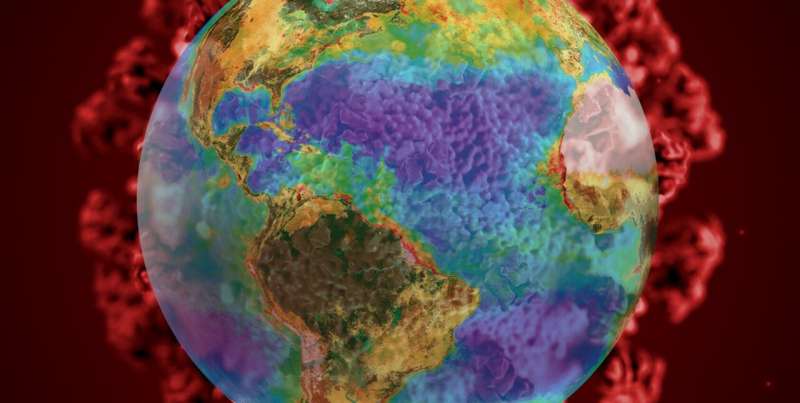COVID-19: How satellites can help

The coronavirus COVID-19 pandemic has virtually paralyzed daily life as we know it. Even when the spread of this highly infectious disease has been stemmed, the world will face huge challenges getting back to normal. To help support experts working in Europe's research centers and technical organizations during these unprecedented times, ESA has issued two new initiatives related to understanding the effects that COVID-19 is imposing on society, the economy and the environment.
As road traffic in cities around the world comes to a near standstill, Europe's Copernicus Sentinel-5P satellite mission is providing key information about changes in concentrations of atmospheric pollutants such as nitrogen dioxide. However, there remains huge potential to use Earth observation data to shed new light on other societal and economic changes currently taking place.
To see how Earth-observing missions could be further used to explore the effects of COVID-19, ESA has issued a new call for proposals. The aim is to see how satellite data can be used, for example, to map changes around transport networks, commercial ports and heavy industry such as oil refineries.
ESA's Director of Earth Observation Programmes, Josef Aschbacher, said, "COVID-19 is putting society under huge strain. While ESA isn't really placed to help forecast the progression of the virus, we certainly continue to have a wealth of data streaming back to us from some of the most sophisticated satellites ever built as well as new artificial intelligence technologies that can be used to understand and monitor some of the societal shifts.
"Innovation is key to using satellite data to help serve society during these challenging times and we trust that our new call will return some valuable proposals."
This new call has been added to the Permanently Open Call, which is part of ESA's Earth Observation Science for Society program.
In addition to the new call, on 6 April ESA in coordination with the European Commission is launching a special edition of the Custom Script Contest. The contest calls for remote sensing experts, machine learning scientists as well as the interested public to submit ideas on how satellite data could help mitigate the situation for economic sectors such as industry, commerce, transport and agriculture, but is also open to other ideas. Anyone can contribute an idea.
The best contributions will be rewarded with cash prizes on a weekly basis. Also, every month there will be a prize for the best idea in each category and a final prize for the best overall contribution.
Grega Milcinski, from Sinergise said, "Participants should simply compose a set of slides presenting their ideas using the Earth observation data, tools and machine learning technologies made easily available for all skill levels. These will be evaluated on a weekly basis in order to make use of them as soon as possible—the COVID-19 situation needs it!"
Provided by European Space Agency





















